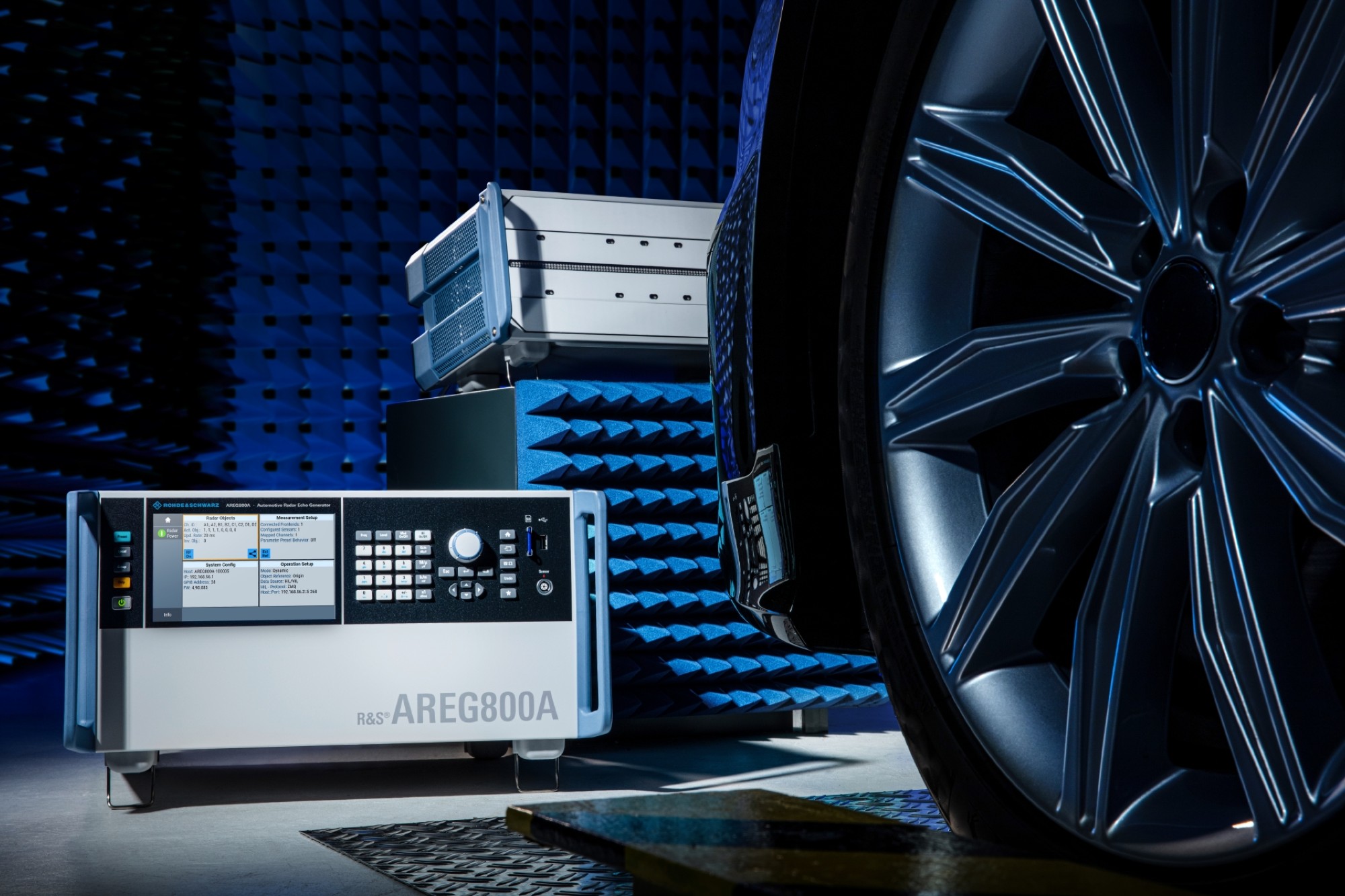Rohde & Schwarz validates automotive radar sensor of NXP
12-Jan-2024 11:22 am
12-Jan-2024 11:22 am

Rohde & Schwarz’s radar target simulator, R&S RTS, a breakthrough in automotive radar, has successfully validated NXP® Semiconductors’ latest radar sensor reference design, showcasing its capability to simulate close-range objects electronically.
The radar target simulator R&S RTS, Rohde & Schwarz’ game-changing solution of automotive radar, in particular its ability to electronically simulate very close-range objects, has been used to verify the performance of NXP® Semiconductors’ next-generation radar sensor reference design. This collaboration enables the automotive industry to take another step forward in the development of automotive radar, the principal technology that enables advanced driver assistance systems (ADAS) and autonomous driving features.
Engineers from both companies conducted a comprehensive series of tests to verify the new sensor reference design which is based on a NXP’s 28 nm RFCMOS radar one-chip SoC (SAF85xx). The R&S RTS radar test system combines the R&S AREG800A automotive radar echo generator with the R&S QAT100 antenna mmW frontend, offering unique short-distance object simulation capabilities as well as superior RF performance and advanced signal processing with many advanced functions. This enables realistic tests of next generation automotive radar applications and brings automotive industry’s vision of fully autonomous driving one step closer.
NXP’s next generation automotive radar sensor reference design is enabled by the industry’s first 28 nm RFCMOS radar one-chip SoC family leveraging the R&S RTS radar test system. The radar sensor reference design can be used for short, medium and long-range radar applications to serve challenging NCAP (NCAP: New Car Assessment Program) safety requirements as well as comfort functions like highway pilot or urban pilot for the fast-growing segment of L2+ and L3 vehicles.
The R&S RTS is the only test system suitable for complete characterization of radar sensors and radar echo generation with object distances down to the airgap value of the radar under test. It combines the R&S AREG800A automotive radar echo generator as a backend and the R&S QAT100 antenna array or the R&S AREG8-81S as a frontend. The technically superior test solution is suitable for the whole automotive radar lifecycle including development lab, hardware-in-the-loop (HIL), vehicle-in-the-loop (VIL), validation and production application requirements. The solution is also fully scalable and can emulate the most complex traffic scenarios for advanced driver assistance systems.
Adi Baumann, Senior Director ADAS R&D, at NXP Semiconductors says: “We have been collaborating closely and successfully with Rohde & Schwarz for many years on the verification of our automotive radar sensor reference designs. Rohde & Schwarz’ cutting-edge automotive radar test systems allows us high quality and highly efficient validation of our automotive radar products and proves outstanding performance of our radar one-chip. The level of experience, quality and support that Rohde & Schwarz provides to NXP is making a difference.”
Gerald Tietscher, Vice President Signal Generators, Power Supplies and Meters from Rohde & Schwarz says: “We are grateful for the collaboration with NXP to accelerate the deployment of advanced automotive radar sensors based on 28 nm automotive radar chips. They serve ever more challenging NCAP safety requirements and will help enable new safety applications. Our experience in automotive radar testing allows us to provide a best-in-class test solution for this radar sensor design based on the industry’s first 28 nm RFCMOS one-chip radar SoC.”
NXP will present the latest developments for radar including the automotive radar sensor reference design at CES 2024 trade show in Las Vegas from January 9 to 12, 2024, at booth CP18/19 in the West Hall.
We use cookies to personalize your experience. By continuing to visit this website you agree to our Terms & Conditions, Privacy Policy and Cookie Policy.
A PROMONIQUE RESEARCH INDIA INITIATIVE